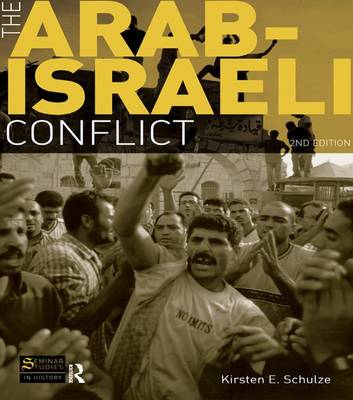Seminar Studies
1 total work
In this fully revised new edition, Kirsten Schulze brings us to a new understanding of the causes, course and consequences of the Arab-Israeli Conflict. Schulze analyses the dynamics of the violence and explores the numerous attempts at resolving the conflict. She assesses why, in the cases of Israel-Egypt in 1978 and Israel-Jordan in 1994, negotiations succeeded in bringing about a lasting peace and why, in the cases of Israel, and the Palestinians, Syria and Lebanon, they failed to do so. Written in a clear and accessible style, this fully updated second edition:
* Traces the origins of the conflict from their first intellectual roots in the 19th century.
* Examines the actions and aims of the competing nationalist movements during the period of the British Mandate which led to the creation of the state of Israel.
* Outlines and analyses each of the Arab-Israeli conflicts from the creation of the state of Israel in 1948 to the 2006 Lebanon war and the on-going, second Palestinian uprising
With a diverse collection of documents and a Chronology, Glossary, Guide to Further Reading, and a Who's Who summarizing the careers and contributions of the main figures, this book is absolutely vital to understanding the current Israeli-Palestinian violence, the intra-Palestinian rift between Hamas and Fatah, and why the Arab-Israeli conflict has become the centre of Muslim politics, both violent and non-violent, across the world.
